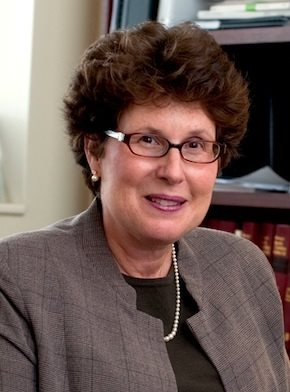Elon Law professor Margaret Robison Kantlehner recently participated in the Southeastern Association of Law Schools (SEALS) conference, presenting on best practices for law school clinical program faculty, as well as legal aid and pro bono attorneys, when interacting with medical professionals on behalf of clients of questionable capacity.

Kantlehner directs Elon Law’s externship, preceptor, and capstone leadership programs and serves as faculty adviser for the law school’s Wills Clinic. At the SEALS conference, she presented on a panel titled, “Interacting with Medical Professionals in Representing Clients with Questionable Capacity: Advice for Law School Clinical Programs Personnel and Law Professors who do Pro Bono Work.”
The panel explored likely impacts on law clinics from projected growth in the nation’s elderly population, including an increase in the number of Americans with dementia, currently estimated at over 5.8 million. With that growth, many individuals are expected to turn to legal aid clinics, law school clinics and pro bono attorneys for help in protecting their legal rights. The panel focused on the ways that law professors, many of whom will represent clients with diminished capacity in their roles as advisers to law clinics, can interact with medical professionals in order to procure needed medical documentation and testimony.
Kantlehner’s presentation addressed practical aspects of interacting with medical professionals, especially in pro bono and clinical settings, where financial resources may be limited. Among a number of recommendations to ensure an efficient and effective process for determining a client’s capacity, Kantlehner stressed the importance of involving clients in all aspects of the process, making the process for physicians as efficient and easy as possible, and timing clients’ visits to physicians in close proximity to the execution of wills. Kantlehner also noted effective uses of other professionals’ statements, such as nurses and social workers, in assessing clients’ functionality.
Other panel participants included: Vaughn James, Texas Tech University School of Law; Marshall Kapp, Florida State University College of Law & College of Medicine; Rebecca Morgan, Stetson University College of Law; and Susan Rozelle, Stetson University College of Law. The conference, held in Palm Beach, Florida, took place July 30 to August 5.


